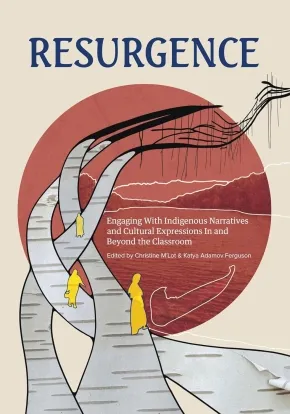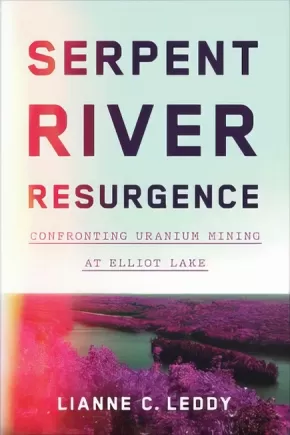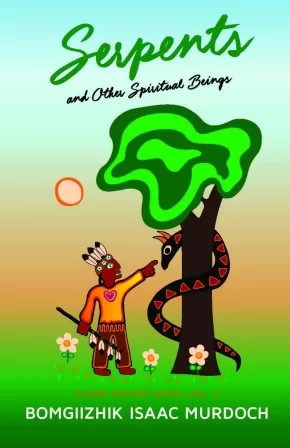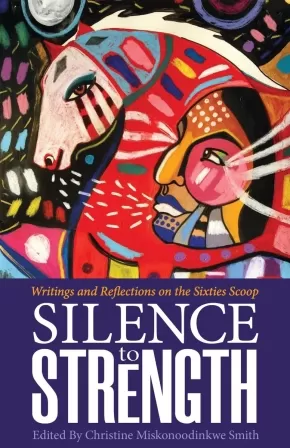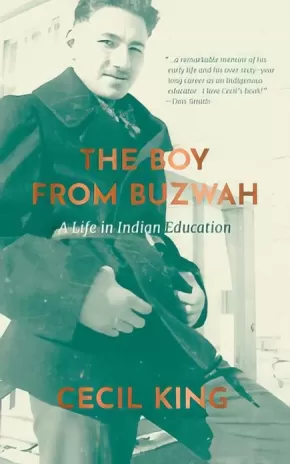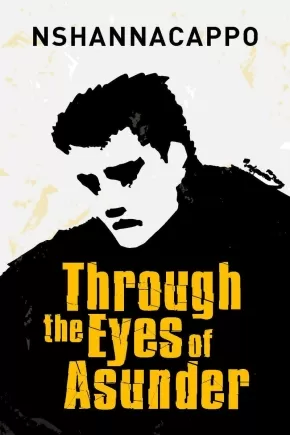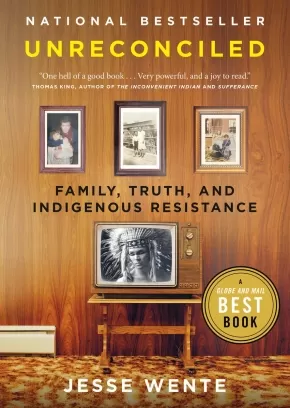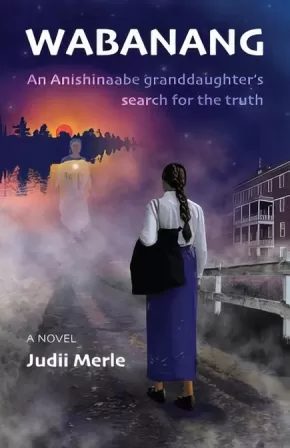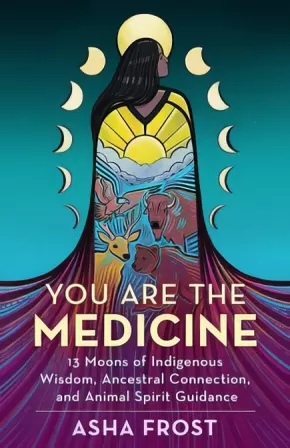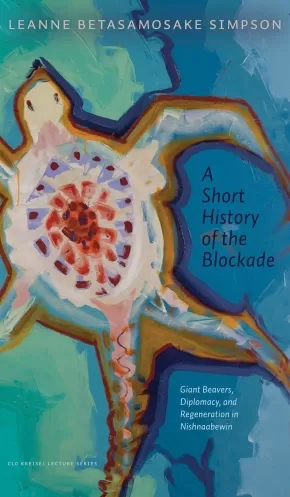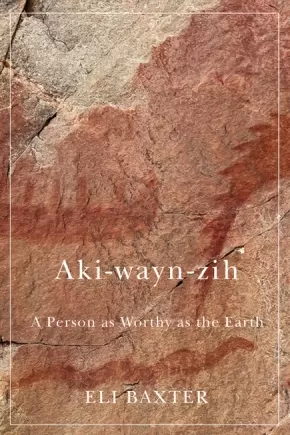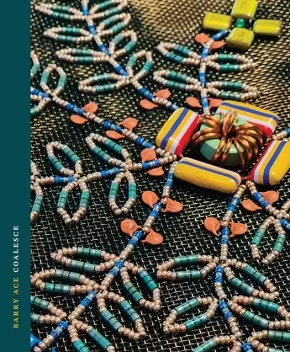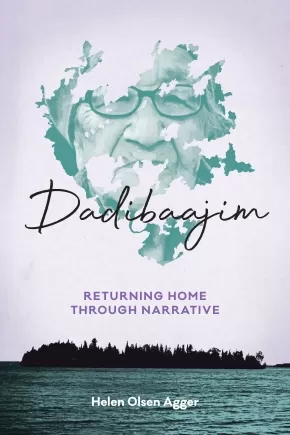
Anishinaabeg
91
-
105
of
200 Results;
Sort By
Go To
of 14
Resurgence: Engaging With Indigenous Narratives and Cultural Expressions In and Beyond the Classroom
$32.00
Editors:
Format:
Paperback
Text Content Territories:
Indigenous Canadian;
ISBN / Barcode: 9781774920008
Synopsis:
Synopsis:
A thoughtful guide to critical engagement with Indigenous literatures, perspectives, and teaching methods as well as ideas and action steps for bringing them into the classroom.
Resurgence is an inspiring collection of contemporary Indigenous poetry, art, and narratives that guides teachers in bridging existing K–12 curricula with Indigenous voices and pedagogies. Walk with us along the footbridge which seeks to:
- connect peoples and places
- link truth and reconciliation as ongoing processes
- symbolize the risk and urgency of this work for both Indigenous and settler educators
- engage tensions
- highlight the importance of balance, both of ideas and within ourselves
Through critical engagement with the texts, experienced educators Christine M’Lot and Katya Adamov Ferguson support readers in connecting with Indigenous narratives and perspectives, bringing Indigenous works in their classrooms, and creating more equitable and sustainable teaching practices.
In this resource, you will find
- diverse Indigenous voices, perspectives, and art forms from all across Turtle Island
- valuable concepts and methods that can be applied to the classroom and beyond
- practical action steps and resources for educators, parents, librarians, and administrators
Use this book as a springboard for your own learning journey or as a lively prompt for dialogue within your professional learning community.
Reviews
"Over the past several years, calls have come from across Canada for the inclusion of Indigenous worldviews and knowledge in all levels of education in the country. Enter...Resurgence." ––Windspeaker
Educator & Series Information
For use with K-12 curricula.
Contributors include KC Adams, Charlene Bearhead, Wilson Bearhead, Lisa Boivin, Nicola Campbell, Sara Florence Davidson, David A. Robertson, and Christina Lavalley Ruddy, and more!
Subjects / Themes: Education; Professional Development; Social Science; Indigenous Studies; Language Arts Disciplines; Study Teaching
This book is part of The Footbridge Series. This series aims to bridge curricular outcomes with Indigenous-centered content and perspectives from across Turtle Island. Like a footbridge, this series is intended to provide a path between Indigenous worldviews and the classroom, engaging differences, including tensions, and highlighting the importance of balance, all while helping teachers integrate Indigenous perspectives into multiple disciplines within the K-12 education system.
Table of Contents
Introduction
About This Book
About The Footbridge Series
Part 1: Resistance
Beyond Being Silenced by Sara Florence Davidson
- Connections
Poetry as Cultural Expression by Rita Bouvier
- Connections
T’seka Reflection by Lucy Hemphill
- Connections
Poetry by Louise Bernice Halfe
- Connections
Part 2: Resilience
Mental Health by David A. Robertson
- Connections
Writing as a Therapeutic Medium by Wanda John-Kehewin
- Connections
Birch Bark Technology by KC Adams
- Connections
Images and Health by Lisa Boivin
- Connections
Part 3: Restoring
Stories are Resurgence by Wilson Bearhead and Charlene Bearhead
- Connections
Why am I not on Star Trek? by Sonya Ballantyne
- Connections
Indigenous Spaces by Reanna Merasty
- Connections
Games as Resurgence by Elizabeth LaPensée
- Connections
Part 4: Reconnecting
Poems by Nicola I. Campbell
- Connections
Paths of Tradition by Russell Wallace
- Connections
Let the Children Play by Victoria McIntosh
- Connections
Ethnomathematics and Beading by Christina Ruddy
- Connections
The Contributors
Additional Resources
Index
Additional Information
224 pages | 7.00" x 10.00" | Paperback
Serpent River Resurgence: Confronting Uranium Mining at Elliot Lake
$29.95
Format:
Paperback
Text Content Territories:
Indigenous Canadian; First Nations; Anishinaabeg; Ojibway; Serpent River First Nation;
Reading Level: N/A
ISBN / Barcode: 9781442614376
Synopsis:
Synopsis:
Serpent River Resurgence tells the story of how the Serpent River Anishinaabek confronted the persistent forces of settler colonialism and the effects of uranium mining at Elliot Lake, Ontario. Drawing on extensive archival sources, oral histories, and newspaper articles, Lianne C. Leddy examines the environmental and political power relationships that affected her homeland in the Cold War period.
Focusing on Indigenous-settler relations, the environmental and health consequences of the uranium industry, and the importance of traditional uses of land and what happens when they are compromised, Serpent River Resurgence explores how settler colonialism and Anishinaabe resistance remained potent forces in Indigenous communities throughout the second half of the twentieth century.
Reviews
"Lianne C. Leddy’s book Serpent River Resurgence is a welcome addition to the conversation on mining and development in and around the Elliot Lake area. This is a must-read for any person wanting to engage in reconciliation and to understand that First Nations people have been on the frontlines of resource development and have suffered the consequences. This is a timely message for all in the era of reconciliation, and a reminder that First Nations communities have not always been properly consulted or made aware of the consequences, and have been at the whim of the Federal government. We must be reminded of our past relationships, and how we got to this point, and we need to hear the truth. This book brings to light some of the truths; it is a welcome addition to the conversation on reconciliation."— Chief Brent (Nodini’inini) Bissaillion, Chief of the Serpent River First Nation
"For anyone seeking to understand twentieth-century colonialism in Canada, this book offers a compelling on-the-ground story of resource extraction in Anishinaabek homelands. Lianne C. Leddy has done a superb job of tying together uranium demands for American weapons of war, mining boomtown development, and the rich history and culture of the Serpent River people. It is an antidote to settler narratives of progress and a vision of resilient people, land, and future."— Kim Anderson, Canada Research Chair in Indigenous Relationships and Associate Professor of Family Relations and Applied Nutrition, University of Guelph
"Serpent River Resurgence is a powerful community-based history of resilience and reclamation. Filling a critical gap in Indigenous history, Lianne C. Leddy demonstrates the impact of the global dynamics of settler colonialism during the Cold War while centring an impressive story of Indigenous resurgence."— Allan Downey, Nak'azdli Whut’en First Nation and Associate Professor of History and Indigenous Studies, McMaster University
"Of bicultural parentage, Leddy situates herself within this story as a member of both sides – Anishinaabe and Canadian. As an Indigenous environmental historian, Leddy explicates the enduring structures of settler colonialism, demonstrating that they are still in force today. To identify those structures, she adroitly deploys the words of her elders, countering their historic exclusion by inserting storytelling into her analysis, while critically approaching and analyzing bureaucratic reports and newspaper articles. A welcome and timely piece of scholarship."— Alan Ojiig Corbiere, Bne Doodem, Canada Research Chair, Indigenous History of North America, York University
"A brilliant analysis of uranium mining in Ontario which centres the lived experiences of Indigenous communities, particularly the Serpent River First Nation. Leddy explores deep-rooted Anishinaabe connections to a particular place, situating these conflicts within global processes of Cold War colonialism. Leddy argues that stories have been the foundation of Indigenous resurgence, and the stories she tells are compelling indeed."— Nancy Langston, Distinguished Professor of Environmental History, Michigan Technological University
Educator Information
Subjects: History / History of Science & Technology; History / Indigenous History; Indigenous Studies / Indigenous History; History / Canadian History; Environmental Studies
Table of Contents
Introduction
1. The Serpent River Anishinaabek before 1950
2. Carving a “Jewel in the Wilderness”: The Establishment of Elliot Lake
3. “It took all the trees”: The Cutler Acid Plant and Its Toxic Legacy
4. “We weren’t supposed to use that water at all!”: Uranium Mining and the
Serpent River
5. “Oooh yes, we all went up to Elliot to protest”: Resilience and Resistance at
Serpent River First Nation
Conclusion
Notes
Bibliography
Additional Information
248 pages | 6.00" x 9.00" | Paperback
Serpents and Other Spiritual Beings
$25.00
Format:
Paperback
Text Content Territories:
Indigenous Canadian; First Nations; Anishinaabeg; Ojibway;
Reading Level: N/A
ISBN / Barcode: 9781928120353
Synopsis:
Synopsis:
Serpents and Other Spiritual Beings is the second book in a series by renowned Ojibwe storyteller Bomgiizhik Isaac Murdoch, following on The Trail of Nenaboozhoo and Other Creation Stories (2019). Serpents and Other Spiritual Beings is a collection of traditional Ojibwe/Anishinaabe stories transliterated directly from Murdoch's oral storytelling. Part history, legend, and mythology, these are stories of tradition, magic and transformation, morality and object lessons, involving powerful spirit-beings in serpent form. The stories appear in both English and Anishinaabemowin, with translations by Patricia BigGeorge. Murdoch's traditional-style Ojibwe artwork provides beautiful illustrations throughout.
Reviews
"'When the Thunderbirds and Serpents fight, they feed off each other, you know great medicine gets cast across the land. We get our life from that.' So writes storyteller Isaac Murdoch as he shares his Elders' stories about tunnels beneath the earth, rich laws, philosophies, teachings, power from up there, down there, and all around us, until we too hear the thunders as they bring us into the world of wahkotowin, all our relations. How privileged and blessed we are to be able to read the Ahtyokaywina of our people."--Maria Campbell, author of Halfbreed
"Gather around, for here are oral stories transcribed so they retain the flavour of a narrative spoken aloud, and translated into Anishinaabemowin; perfect for language-learners. I love the way these stories infuse the spirit world into an every-day context, these are not dusty old legends, but a living way of seeing the world around us in the here and now."--Nathan Niigan Noodin Adler, author of Ghost Lake
Educator & Series Information
Dual-Language: English and Anishinaabemowin.
Anishinaabemowin translation by Patricia BigGeorge, who is an Anishinaabemowin speaker and translator.
This book is Vol. 2 in the Ojibwe History Series.
Additional Information
100 pages | 5.50" x 8.50" | 20 illustrations | Paperback
Silence to Strength: Writings and Reflections on the 60s Scoop
$18.00
Editors:
Format:
Paperback
Text Content Territories:
Indigenous Canadian;
Grade Levels: 12; University/College;
ISBN / Barcode: 9781928120339
Synopsis:
Synopsis:
From the 1960s through the 1980s the Canadian Children's Aid Society engaged in a large-scale program of removing First Nations children from their families and communities and adopting them out to non-Indigenous families. This systemic abduction of untold thousands of children came to be known as the Sixties Scoop. The lasting disruption from the loss of family and culture is only now starting to be spoken of publicly, as are stories of strength and survivance.
In Silence to Strength: Writings and Reflections on the 60s Scoop, editor Christine Miskonoodinkwe Smith gathers together contributions from twenty Sixties Scoop survivors from across the territories of Canada. This anthology includes poems, stories and personal essays from contributors such as Alice McKay, D.B. McLeod, David Montgomery, Doreen Parenteau, Tylor Pennock, Terry Swan, Lisa Wilder, and many more. Courageous writings and reflections that prove there is strength in telling a story, and power in ending the silence of the past.
Reviews
"This is an excellent collection and I recommend it to all who are interested in learning the truth about Indigenous Peoples by reading what they have written, not what has been written about them by non-Indigenous writers. The striking cover art is by George Littlechild, also a survivor of the Sixties Scoop." - MariJo Moore
Additional Information
140 pages | 5.50" x 8.50" | Paperback
The Boy from Buzwah: A Life in Indian Education
$29.95
Format:
Paperback
Text Content Territories:
Indigenous Canadian; First Nations; Anishinaabeg; Odawa (Ottawa);
Reading Level: N/A
ISBN / Barcode: 9780889778504
Synopsis:
Synopsis:
Cecil King’s remarkable memoir, from humble beginnings on a reservation to his unparalleled legacy to ensure Indian Control of Indian Education in Canada.
“Through my eyes, my community was creative, innovative and self-sufficient. In this remote northern traditional First Nation society, the skills, knowledge and abilities that the community needed to survive were all there. . . . The stories are not just of survival and hardship but of the power of the human spirit and the sheer natural genius of individuals.” — Cecil King
Cecil King grew up in the small settlement of Buzwah, Ontario, situated on Wikwemikong Unceded Indian Reserve on Manitoulin Island. This moving memoir shares King’s life on reserve in the 1930s and ’40s and describes a vibrant community full of interesting characters who shared knowledge, warmth, affection, and humour. King also describes his experiences attending Buzwah Indian Day School and St. Charles Garnier Residential School.
After furthering his education, King returned home to Buzwah as a teacher. He quickly became disillusioned with the Ontario curriculum and how inadequately it resonated with on-reserve youth and the realities of Indigenous life. It was then that King began his unparalleled legacy to ensure Indian Control of Indian Education in Canada.
King helped create curriculum that connected to traditional Indigenous cultures and established First Nation language courses in elementary and secondary schools. Over the course of his fifty-year career in education, he would found the Indian Teacher Education Program at the University of Saskatchewan, become the first director of the Aboriginal Teacher Education Program at Queen’s University, and develop Ojibwe language courses across North America.
A remarkable story about a remarkable man, The Boy from Buzwah is a powerful testament to Dr. Cecil King’s work and legacy.
Reviews
“A poignant reflective must-read memoir of an Indigenous educator whose life lived was Indigenizing and decolonizing western academies.” —Marie Battiste, author of Decolonizing Education and Honorary Officer of the Order of Canada
“Miigwetch Cecil King, for sharing your remarkable journey and life in this essential book, which educators and learners will treasure. This is a book of extraordinary generosity and humility, and one that provides both context and direction for the future of Indigenous education.” —Jesse Wente, author of Unreconciled
“An essential account of an Indigenous scholar’s trailblazing and sweeping contributions towards restoring and inspiring indigenous control of indigenous education.” —Verna St. Denis, University of Saskatchewan
“Cecil King’s memoir is an important contribution to the Indigenous literature, documenting early life on the Wikwemikong Unceded Indian Reserve, disclosing the enduring roots of Odawa tradition, chronicling the re-emergence of Anishnawbe culture and the rise of Indigenous activism, particularly in the important area of Indigenous education.” —Hon. Leonard S. Tony Mandamin IPC, Justice in Residence, Faculty of Law/Faculty of Native Studies, University of Alberta
“Cecil King has written a remarkable memoir of his early life and his over sixty-year-long career as an Indigenous educator. The teacher, respected community leader, and post-secondary professor and administrator, argues most convincingly for a system of First Nations education that incorporates fully Indigenous history, culture, and present-day realities. I love Cecil’s book!” —Don Smith, Professor Emeritus of History, University of Calgary
"Cecil King's book about his experiences in a day school, residential school, the bureaucracy and institutional development on Indigenous education presents an important perspective in the debate on educational change in the past half-century. His personal perspective and his use of Ojibwe as part of this history introduces a new qualitative dimension to this debate." —Keith Goulet, former Minister of Northern Affairs for Saskatchewan
Educator Information
King was one of the first to create curricula designed for Indigenous children and education programs to train Indigenous teachers and to establish some of the first Indigenous language courses in North America.
King understood that strengthening students’ cultural identity was key to their academic success and saw how the Canadian curriculum was not designed to do this.
Additional Information
356 pages | 5.00" x 8.50" | Paperback
Through the Eyes of Asunder
$17.95
Format:
Paperback
Text Content Territories:
Indigenous Canadian; First Nations; Anishinaabeg; Ojibway; Saulteaux; Rolling River First Nation;
Grade Levels: 12; University/College;
ISBN / Barcode: 9781928120322
Synopsis:
Synopsis:
From epic ventures into mythic and fantastical tales to the everyday trials of getting the laundry done, NShannacappo’s debut poetry collection follows many journeys through darkness to hope, healing and heroism. Pure and hauntingly beautiful turns of phrase sound out in the voices of angels, monsters and demons, mythic characters, and the sometimes wry, sometimes grieving voice of a man once broken in heart, spirit, and mind. Through the Eyes of Asunder begins and ends with hope, and takes the reader through sorrow and sadness to bright moments of happiness and love.
Reviews
“Neal Shannacappo is a spiritual thinker. The poetry and life’s perspectives he shares in this collation remind us of the unconditional love and support one can access through the Creator-given learning ways we as human beings are blessed to be born with. Read his words! Feed them to your heart, digest them spiritually and you will benefit from the medicine intended in every word and stanza.”—Albert Dumont, 2021–2022 Poet Laureate for Ottawa and author of Sitting by the Rapids.
“Reading this book, it felt many times like I had stumbled upon a shoebox filled with letters not sent and journals put away for safekeeping. You feel like you shouldn’t pry, but you just can’t help yourself. It was a wonderful read.”—John Brady McDonald, author of KITOTAM
Additional Information
143 pages | 6.00" x 9.00" | 6 illustrations | Paperback
Unreconciled: Family, Truth, and Indigenous Resistance (PB)
$22.00
Format:
Paperback
Text Content Territories:
Indigenous Canadian; First Nations; Anishinaabeg; Ojibway; Serpent River First Nation;
Reading Level: N/A
ISBN / Barcode: 9780735235755
Synopsis:
Synopsis:
A prominent Indigenous voice uncovers the lies and myths that affect relations between white and Indigenous peoples and the power of narrative to emphasize truth over comfort.
Part memoir and part manifesto, Unreconciled is a stirring call to arms to put truth over the flawed concept of reconciliation and to build a new, respectful relationship between the nation of Canada and Indigenous peoples.
Jesse Wente remembers the exact moment he realized that he was a certain kind of Indian--a stereotypical cartoon Indian. He was playing softball as a child when the opposing team began to war-whoop when he was at bat. It was just one of many incidents that formed Wente's understanding of what it means to be a modern Indigenous person in a society still overwhelmingly colonial in its attitudes and institutions.
As the child of an American father and an Anishinaabe mother, Wente grew up in Toronto with frequent visits to the reserve where his maternal relations lived. By exploring his family's history, including his grandmother's experience in residential school, and citing his own frequent incidents of racial profiling by police who'd stop him on the streets, Wente unpacks the discrepancies between his personal identity and how non-Indigenous people view him.
Wente analyzes and gives voice to the differences between Hollywood portrayals of Indigenous peoples and lived culture. Through the lens of art, pop culture, and personal stories, and with disarming humour, he links his love of baseball and movies to such issues as cultural appropriation, Indigenous representation and identity, and Indigenous narrative sovereignty. Indeed, he argues that storytelling in all its forms is one of Indigenous peoples' best weapons in the fight to reclaim their rightful place.
Wente explores and exposes the lies that Canada tells itself, unravels "the two founding nations" myth, and insists that the notion of "reconciliation" is not a realistic path forward. Peace between First Nations and the state of Canada can't be recovered through reconciliation--because no such relationship ever existed.
Reviews
"Unreconciled is one hell of a good book. Jesse Wente’s narrative moves effortlessly from the personal to the historical to the contemporary. Very powerful, and a joy to read."—Thomas King, author of The Inconvenient Indian and Sufferance
“With Unreconciled, Jesse Wente proves himself to be one of the most influential Anishinaabe thinkers of our time. By telling his own story, Jesse provides Canada with an essential roadmap of how to move forward through the myth of reconciliation towards the possibility of a just country. There is much work to be done but reading Jesse’s words, soaking them in and letting them settle in your mind, will set us all on the right path.”—Tanya Talaga, bestselling author of Seven Fallen Feathers
“Mahsi cho, Jesse Wente, for illuminating the biggest issue facing Canada’s relationship with Indigenous people: Canada fears Indigenous people because Canada is terrified of our power. Each language class, culture camp, graduation ceremony, each Supreme Court Ruling, each Treaty (that wasn't forged), each feast and naming ceremony… is part of the incredible Reclaiming happening right now. Please read this book. It's an infuriating read but a necessary one.”—Richard Van Camp, author of The Lesser Blessed and Moccasin Square Gardens
"With Unreconciled, Jesse Wente proves he's a storyteller through and through—one who is unafraid of telling hard but necessary truths, yes, but also one who knows that vulnerability is the quickest way to the heart. Wente shares so generously with his readers in this book, braiding together his own past with the problems of the present, ultimately offering us a way forward, together."—Alicia Elliott, author of A Mind Spread Out on the Ground
Additional Information
208 pages | 5.10" x 7.98" | Paperback
Voicing Identity: Cultural Appropriation and Indigenous Issues
$38.95
Editors:
Format:
Paperback
Text Content Territories:
Indigenous Canadian;
Grade Levels: 12; University/College;
ISBN / Barcode: 9781487544683
Synopsis:
Synopsis:
Written by leading Indigenous and non-Indigenous scholars, Voicing Identity examines the issue of cultural appropriation in the contexts of researching, writing, and teaching about Indigenous peoples. This book grapples with the questions of who is qualified to engage in these activities and how this can be done appropriately and respectfully.
The authors address these questions from their individual perspectives and experiences, often revealing their personal struggles and their ongoing attempts to resolve them. There is diversity in perspectives and approaches, but also a common goal: to conduct research and teach in respectful ways that enhance understanding of Indigenous histories, cultures, and rights, and promote reconciliation between Indigenous and non-Indigenous peoples.
Bringing together contributors with diverse backgrounds and unique experiences, Voicing Identity will be of interest to students and scholars studying Indigenous issues as well as anyone seeking to engage in the work of making Canada a model for just relations between the original peoples and newcomers.
Reviews
"This book is a beautiful and fearless gift to those willing to be challenged about popular public claims regarding a range of cultural appropriation issues. The editors and contributors have created a rich and contextual resource to generate critical conversations about forms of lateral violence and unproductive silencing, and about our need for ‘deliberate unknowing’ so we have space for real learning, practical institutional change, and inclusivity. This collection invites us to ask how ‘Raven steals the sun,’ making sure ‘we look both ways’ when reconsidering history, and thinking about the ‘we’ and the ‘ours.’"— Val Napoleon, IPC, Cree, Saulteau First Nation, Acting Dean and Professor and Law Foundation Chair of Indigenous Justice and Governance, Faculty of Law, University of Victoria
"A highly stimulating and engaging contribution to a much-debated topic – all the more absorbing because the authors come from a wide range of backgrounds and ground their contributions in their personal experiences. Essential reading for anyone with an interest in the subject."— Brian Slattery, Professor Emeritus, Osgoode Hall Law School, York University
Educator Information
Table of Contents
Introduction
John Borrows and Kent McNeil
1. Su-taxwiye: Keeping My Name Clean
Sarah Morales
2. At the Corner of Hawks and Powell: Settler Colonialism, Indigenous People, and the Conundrum of Double Permanence
Keith Carlson
3. Look at Your "Pantses": The Art of Wearing and Representing Indigenous Culture as Performative Relationship
Aimée Craft
4. Indigenous Legal Traditions, De-sacralization, Re-sacralization, and the Space for Not-Knowing
Hadley Friedland
5. Mino-audjiwaewin: Choosing Respect, Even in Times of Conflict
Lindsay Borrows
6. How Could You Sleep When Beds Are Burning? Cultural Appropriation and the Place of Non-Indigenous Academics
Felix Hoehn
7. Who Should Teach Indigenous Law?
Karen Drake and A. Christian Airhart
8. Reflections on Cultural Appropriation
Michael Asch
9. Turning Away from the State: Cultural Appropriation in the Shadow of the Courts
John Borrows
10. Voice and Indigenous Rights
Robert Hamilton
11. Guided by Voices? Perspective and Pluralism in the Constitutional Order
Joshua Nichols
12. NONU WEL,WEL TI,Á NE TȺ,EȻEȽ: Our Canoe Is Really Tippy
kQwa'st'not and Hannah Askew
13. Sharp as a Knife: Judge Begbie and Reconciliation
Hamar Foster
14. On Getting It Right the First Time: Researching the Constitution Express
Emma Feltes
15. Confronting Dignity Injustices
Sa’ke’j Henderson
Contributors
Additional Information
336 pages | 6.00" x 9.00" | 5 black and white illustrations | Paperback
Wabanang, Daughter of the Stars: An Anishinaabe Novel
$17.95
Format:
Paperback
Text Content Territories:
Indigenous Canadian; First Nations; Anishinaabeg; Algonquin;
ISBN / Barcode: 9781990326066
Synopsis:
Synopsis:
In the winter of 1876, a baby is born to Anishinaabe parents along the trapline in the northern Ontario wilderness. Seventy-five years later, her granddaughter is seeking information about her grandmother's life, why her family is so fractured, and what part the residential school played in the dysfunction and estrangement which has shaped her own life. To that end, twenty—two-year-old Janey enlists the help of a hypnotist who regresses Janey back to a time when Indigenous people in Canada lived off the land, supported each other and raised their children without outside interference. But when settlers began to arrive and residential schools were established, all that changed.
In her hypnotic state, Janey is able to follow her grandmother, Wabanang (Morning Star) as a child, as a residential school student and as a medicine woman for her people. But the seeds of distrust and fear sown along the way are destroying her family. Estranged from her mother and living with her only relative, Janey must find her own way through the smoke of confusion to discover who she is.
Although this is a work of fiction. The author has drawn on her own family's history, ceremonies and visions from her own life, stories shared with her by respected elders, as well as many years of researching her own and other families.
Additional Information
232 pages | 5.51" x 8.46" | Paperback
You Are the Medicine: 13 Moons of Indigenous Wisdom, Ancestral Connection, and Animal Spirit Guidance
$23.99
Format:
Paperback
Text Content Territories:
Indigenous Canadian; First Nations; Anishinaabeg; Ojibway;
Reading Level: N/A
ISBN / Barcode: 9781401963507
Synopsis:
Synopsis:
Indigenous Medicine Woman Asha Frost invites readers to learn the healing medicine of the 13 Ojibway moons and the spirit animals that will guide their wisdom journey.
If you are drawn to Indigenous Medicine ways, you, too, have power and beauty in your own lineage waiting to be discovered.
Follow the path of the 13 Ojibway moons with animal spirits as your guides to unlock powerful teachings that will help you directly experience your own medicine connection to your inherent healing powers. If you feel you don't have access to your roots, ancestors, or spiritual connection and you look outside of yourself for answers, you are forgetting the medicine you need lives within you.
Through storytelling, personal reflections, ceremonies, rituals, and shamanic journeys, readers will learn to apply ancient wisdom and ancestral medicine to their own lives in meaningful ways that are respectful and conscious of the stolen lands, lives, and traditions of Indigenous peoples.
Discover how to:
• Ground and root into your own lineage and your ancestral guides.
• Connect to spirit and your innate healing powers in your own unique way.
• Practice self-care and rest on your journey.
• Return ancestral ways of cleansing and purifying.
• Trust and surrender in order to manifest.
• Remember your dreams and use them in your daily life.
• Release self-doubt, fear, disconnection, and insecurity.
Additional Information
280 pages | 5.50" x 8.50" | Paperback
A Short History of the Blockade: Giant Beavers, Diplomacy, and Regeneration in Nishnaabewin
$12.99
Format:
Paperback
Grade Levels: 12; University/College;
ISBN / Barcode: 9781772125382
Synopsis:
Synopsis:
In A Short History of the Blockade, award-winning writer Leanne Betasamosake Simpson uses Michi Saagiig Nishnaabeg stories, storytelling aesthetics, and practices to explore the generative nature of Indigenous blockades through our relative, the beaver—or in Nishnaabemowin, Amik. Moving through genres, shifting through time, amikwag stories become a lens for the life-giving possibilities of dams and the world-building possibilities of blockades, deepening our understanding of Indigenous resistance, as both a negation and an affirmation. Widely recognized as one of the most compelling Indigenous voices of her generation, Simpson’s work breaks open the intersections between politics, story, and song, bringing audiences into a rich and layered world of sound, light, and sovereign creativity. A Short History of the Blockade reveals how the practice of telling stories is also a culture of listening, “a thinking through together,” and ultimately, like the dam or the blockade, an affirmation of life.
Educator Information
Subjects & Keywords: Social Sciences, Literary Criticism, Indigenous Studies; Indigenous resistance, blockades, beaver dams, Nishnaabeg storytelling, regeneration, generative resistance, Canadian Indigenous literature, land defenders, water defenders, practice of wisdom, Indigenous stories, Indigenous authors.
Recommended in the Canadian Indigenous Books for Schools collection for grades 10 to 12 for these subjects: Social Studies, English Language Arts, English First Peoples
Additional Information
88 pages | 5.25" x 9.00"
Aki-wayn-zih: A Person as Worthy as the Earth
$27.95
Format:
Hardcover
Text Content Territories:
Indigenous Canadian; First Nations; Anishinaabeg; Ojibway;
Reading Level: N/A
ISBN / Barcode: 9780228008071
Synopsis:
Synopsis:
One man’s story of growing up in the hunting and gathering society of the Ojibways and surviving the residential school system, woven together with traditional legends in their original language.
Members of Eli Baxter’s generation are the last of the hunting and gathering societies living on Turtle Island. They are also among the last fluent speakers of the Anishinaabay language known as Anishinaabaymowin. Aki-wayn-zih is a story about the land and its spiritual relationship with the Anishinaabayg, from the beginning of their life on Miss-koh-tay-sih Minis (Turtle Island) to the present day. Baxter writes about Anishinaabay life before European contact, his childhood memories of trapping, hunting, and fishing with his family on traditional lands in Treaty 9 territory, and his personal experience surviving the residential school system. Examining how Anishinaabay Kih-kayn-daa-soh-win (knowledge) is an elemental concept embedded in the Anishinaabay language, Aki-wayn-zih explores history, science, math, education, philosophy, law, and spiritual teachings, outlining the cultural significance of language to Anishinaabay identity. Recounting traditional Ojibway legends in their original language, fables in which moral virtues double as survival techniques, and detailed guidelines for expertly trapping or ensnaring animals, Baxter reveals how the residential school system shaped him as an individual, transformed his family, and forever disrupted his reserve community and those like it. Through spiritual teachings, historical accounts, and autobiographical anecdotes, Aki-wayn-zih offers a new form of storytelling from the Anishinaabay point of view.
Reviews
"Aki-wayn-zih will educate not only Canadians but the world as to what my people went through during this tragic part of history. I recommend this book wholeheartedly, and I hope that it inspires our young people and the public to learn more about Indigenous Peoples, our history, and why we remain strong in our culture, our languages, our lands, and our nations." — David Paul Achneepineskum, Matawa First Nations
"Eli Baxter eloquently weaves us through his life on the land. This is not just a book, but also a record of Anishinaabay customs and beliefs. What also makes this an incredible treasure is the fact that it is expressed in the language. No doubt a language resource for many generations to come, the information in this book is sacred and will transform lives." — Isaac Murdoch, Onaman Collective
"I truly enjoyed reading this book: its way of storytelling drew me in from the opening page. Aki-wayn-zih sets up the storytelling approach of the Anishinaabay language, offering important teachings in a subtle way, and bringing in a strongly experientially grounded sense of the language and its importance for healing and connecting with the spirit of land relations." — Timothy Brian Leduc, Wilfrid Laurier University and author of A Canadian Climate of Mind: Passages from Fur to Energy and Beyond
"Aki-wayn-zih will help many North American settlers and immigrants understand the history of the Anishinaabay people and the land that now sustains all of us. This book is eloquent and well written and offers perspectives that range from supporting dominant narratives to providing important contrasting views. It is clearly the work of an articulate storyteller respected in and beyond his community." — Margaret Ann Noodin, University of Wisconsin–Milwaukee and author of What the Chickadee Knows
Additional Information
160 pages | 5.50" x 8.50" | 5 photos, 1 map | Hardcover
Coalesce
$20.00
Artists:
Format:
Paperback
Text Content Territories:
Indigenous Canadian; First Nations; Anishinaabeg;
ISBN / Barcode: 9780994036131
Synopsis:
Synopsis:
Coalesce is a fusion of distinct Anishinaabeg aesthetics of the Great Lakes region with refuse from Western society’s technological and digital age in order to intentionally shift an object’s materiality and its accepted paradigm within the physical world. It is through the integration and juxtaposition of recognizable materials used in the making of Anishinaabeg material culture, such as glass beads and porcupine quills, with new-found materials, such as electronic components (capacitors and resistors), that this body of work disproves any notion of Anishinaabeg cultural stasis. Coalesce demonstrates the continuum of Anishinaabeg innovation and expression by making use of disparate materials that knowingly coalesce and segue seamlessly into contemporary Anishinaabeg artistic tradition and material culture.
Additional Information
48 pages | 7.00" x 8.50"
Dadibaajim: Returning Home through Narrative
$27.95
Format:
Paperback
Text Content Territories:
Indigenous Canadian; First Nations; Anishinaabeg;
Grade Levels: University/College;
ISBN / Barcode: 9780887559549
Synopsis:
Synopsis:
Dadibaajim narratives are of and from the land, born from experience and observation. Invoking this critical Anishinaabe methodology for teaching and learning, Helen Agger documents and reclaims the history, identity, and inherent entitlement of the Namegosibii Anishinaabeg to the care, use, and occupation of their Trout Lake homelands.
When Agger’s mother, Dedibaayaanimanook, was born in 1922, the community had limited contact with Euro-Canadian settlers and still lived throughout their territory according to seasonal migrations along agricultural, hunting, and fishing routes. By the 1940s, colonialism was in full swing: hydro development had resulted in major flooding of traditional territories, settlers had overrun Trout Lake for its resource, tourism, and recreational potential, and the Namegosibii Anishinaabe were forced out of their homelands in Treaty 3 territory, north-western Ontario.
Agger mines an archive of treaty paylists, census records, and the work of influential anthropologists like A.I. Hallowell, but the dadibaajim narratives of eight community members spanning three generations form the heart of this book. Dadibaajim provide the framework that fills in the silences and omissions of the colonial record. Embedded in Anishinaabe language and epistemology, they record how the people of Namegosibiing experienced the invasion of interlocking forces of colonialism and globalized neo-liberalism into their lives and upon their homelands. Ultimately, Dadibaajim is a message about how all humans may live well on the earth.
Reviews
“Dadibaajim is the product of a lifetime of reflection, and the distilled narrative we are presented shares an invaluable part of our Anishinaabe – and larger human – story that might have otherwise never been told. This work brings new value and appreciation for the role and positionality of our senior and traditional Elders, our Indigenous languages, and knowledge building customs and protocols that are inherent to the community." — Brian McInnes
"Dadibaajim is a fascinating story of the people and the land told from a uniquely Anishinaabe perspective. It also gives us hope for the future of these stories and traditions, particularly in the narratives, experiences, and perspectives of the younger generations that are represented." — Brian McInnes
“Dadibaajim is brilliant in its unapologetic incorporation of Anishinaabemowin and its prioritizing of Anishinaabe way of being in the world. It contributes to important decolonial work and challenges settler histories and discourse.” — Brittany Luby and Margaret Lehman
Educator Information
Table of Contents
Ch 1: How We Know
Ch 2: Subjectivity
Ch 3: As Written of Us
Ch 4: Our Anishinaabe Selves
Ch 5: Boreal Narratives
Ch 6: Colonial Identity
Ch 7: Anishinaabe Rectitude
Ch 8: Historical Texts
Additional Information
176 pages | 6.00" x 9.00" | Black and white illustrations and tables, maps, index, bibliography | Paperback
Gehl v Canada: Challenging Sex Discrimination in the Indian Act
$26.95
Format:
Paperback
Text Content Territories:
Indigenous Canadian; First Nations; Anishinaabeg; Algonquin;
Grade Levels: University/College;
ISBN / Barcode: 9780889778252
Synopsis:
Synopsis:
For 34 years, Lynn Gehl fought against the sex discrimination built into Canada’s Indian Act. This is the story of her challenges and eventual success.
A follow-up to Claiming Anishinaabe, Gehl v Canada is the story of Lynn Gehl’s lifelong journey of survival against the nation-state’s constant genocidal assault against her existence. While Canada set up its colonial powers—including the Supreme Court, House of Commons, Senate Chamber, and the Residences of the Prime Minister and Governor General—on her traditional Algonquin territory, usurping the riches and resources of the land, she was pushed to the margins, exiled to a life of poverty in Toronto’s inner-city.
With only beads in her pocket, Gehl spent her entire life fighting back, and now offers an insider analysis of Indian Act litigation, the narrow remedies the court imposes, and of obfuscating parliamentary discourse, as well as an important critique of the methodology of legal positivism. Drawing on social identity and Indigenous theories, the author presents Disenfranchised Spirit Theory, revealing insights into the identity struggles facing Indigenous Peoples to this day.
Reviews
“Congratulations . . . to Dr. Lynn Gehl for her successful challenge of the Indian Registrar’s refusal to allow her to be registered under the Indian Act. . . . Good win, Lynn!”—The Honourable Murray Sinclair
“With knowledge and experience from years of advocacy before Parliament as well as the courts, and the depth of perception typical of all her scholarly work, Dr. Gehl assesses what more is needed before the Indian Act system can be truly egalitarian. Her book is unique and inspiring.” —Mary Eberts, from the foreword
“[R]emarkable . . . a monument in Indigenous struggles with the colonial Crown.” —Veldon Coburn, Institute of Indigenous Research and Studies at University of Ottawa
“Gehl embodies essential Indigenous wisdom, bravery, and responsibility in her work to dismantle the systems of colonial oppression. Her work serves as a beacon in a network of pathways for our people to make their way home.” —Chief Wendy Jocko, Algonquins of Pikwàkanagàn First Nation
“The legal decision in Gehl v Canada will have profound effects for the future, ensuring that hundreds of thousands of Indigenous mothers will be able to pass their status on to their children. This victory, the product of decades of struggle by Lynn Gehl, is chronicled here. Read it and learn!” —Bonita Lawrence, author of Fractured Homeland
Educator Information
This is the follow-up to Claiming Anishinaabe.
Centres Anishinaabe methods of personal truth over western academia.
Introduces readers to the paternity policy of the Indian Art, explaining how this policy was sexual discrimination and bloodless genocide. The paternity policy of the Indian Act required individuals claiming Status to demonstrate the lineage of both parents. Harmful to Indigenous mothers and children, and imposing a high evidentiary burden on Indigenous people claiming Status, it was overturned on April 20, 2017, in what is now known as the Gehl decision.
Additional Information
288 pages | 6.00" x 9.00" | Paperback
Sort By
Go To
of 14

